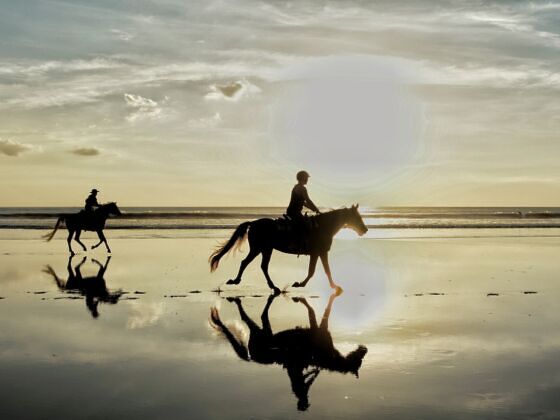I FIRST SAW the words in a hostel in Spain. Le persone non fanno i viaggi, sono i viaggi che fanno le persone. For the rest of the trip and for years after, I was under the impression that this was some ancient Italian proverb. Later, I discovered it is taken from John Steinbeck’s Travels with Charley:

In the beginning of this record I tried to explore the nature of journeys, how they are things in themselves, each one an individual and no two alike. I speculated with a kind of wonder on the strength of the individuality of journeys and stopped on the postulate that people don’t take trips — trips take people.
Steinbeck’s choice of words portrays the journey as sovereign, superseding the traveler’s will and dragging him along for the ride. The translation, however, has the implication of craft. It uses fare, the Italian verb for “to make” or “to do.” In this case, the journey molds the traveler, sculpting him into a newer version of himself.
Since I began studying my first foreign language seven years ago, I never stopped to consider the distinction between “making” a trip in a Romance language and “taking” a trip in English. (Among others, I’m told German also uses the verb for “to make” in this phrase, while Danish uses the equivalent of “to take.”)
I accepted that French speakers “make” voyages, just as I accepted that they “brush themselves the teeth” and say the year 1999 as “thousand nine hundred four twenty ten nine.” Coming from a language in which “flammable” and “inflammable” are synonyms, and in which “cleaved” can mean either severed or stuck together, I have never been in any position to question linguistic idiosyncrasies.
But now that I have noticed, I can’t stop dwelling on it. I am fascinated by the thought that a person’s language can predispose him to conceptualize travel in a particular way. (More generally, the idea that the characteristics of our native tongue shape or at least influence our worldview is known as linguistic relativity, or the Sapir-Whorf hypothesis.)
It means that somewhere in the world, a girl not unlike me is making her trip at this very second, forging it with each footfall, each conversation, and every other choice she makes. I imagine her mind sewing together these new memories — the sound and smell of roti canai, the full moon shining on a strange city, the crackling static of her last phone call home — and then stitching these experiences into her very being. Like sand in the desert, this existence is at once granular and whole.
I’m not sure that any phrase in English encompasses this idea of creation. There are occasions when we use the phrase “to make a trip” (as in, “I have to make a trip to the bank”), but it deals more with necessity — with having to do something — than with construction. “Taking a trip” summons a vision of trips fully formed, idle and stagnant on a shelf.
It suggests they are indistinguishable from one another. It implies, for example, that my solo trek across Switzerland was identical to my parents’ trip there in the 1980s, and I doubt anyone would argue that it was. Instead of creation, we have possession. We speak of taking trips as we speak of seizing something from the world.
I must admit to pursuing possession. I never outgrew the childish faith that we are all different; I still succumb to that pretense of uniqueness. I desire a sort of conquest over the trips I’ve taken.
I want to carry them with me, to make them part of me so that they differentiate me from someone else. I’d like to own the sight of sunflower fields in Seville; to possess the smothering humidity of Bangkok; to claim the Outback’s pre-dawn chill for my own, though I know innumerable others could also claim it, perhaps more rightfully. I want them because they lend credence to the illusion that there is something special about my distinct combination of experiences. Without them, I might as well have never left home at all.
Don’t get me wrong. I know that my mental conquest doesn’t matter, and that no one is trying to take these things from me. I am aware that wanting to own sunrise at Uluru, tucking it in between the memory of an early morning digestive and the subsequent post-breakfast nap, will never affect the sun rising and setting every day from now until the end of time.
The point is that I’ve arrived at that discussion because of a simple word: take. It is remarkable that a single verb can connect taking a trip with such disparate concepts as taking a nap, taking credit, taking part, and taking candy from a baby, just as in French, faire un voyage (taking a trip) is connected to faire ses valises (packing suitcases), faire le lit (making the bed), and se faire des amis (making friends).
The webs we spin, even when unburdened by consciousness, are guided by the linguistic constructs of our minds and cultures. Can we change the way we connect trips, taking, and making? Would it make any difference if we did?
The romantic in me says yes, or at least wants to think so. I don’t want to take trips, if only because, as Steinbeck warns, I don’t want a trip to take me. I want to make trips; I want to build them. I want to make choices that affect their richness. I can only hope the faux-proverb is true and that, in turn, my travels will fashion me a better, braver, wiser version of myself.